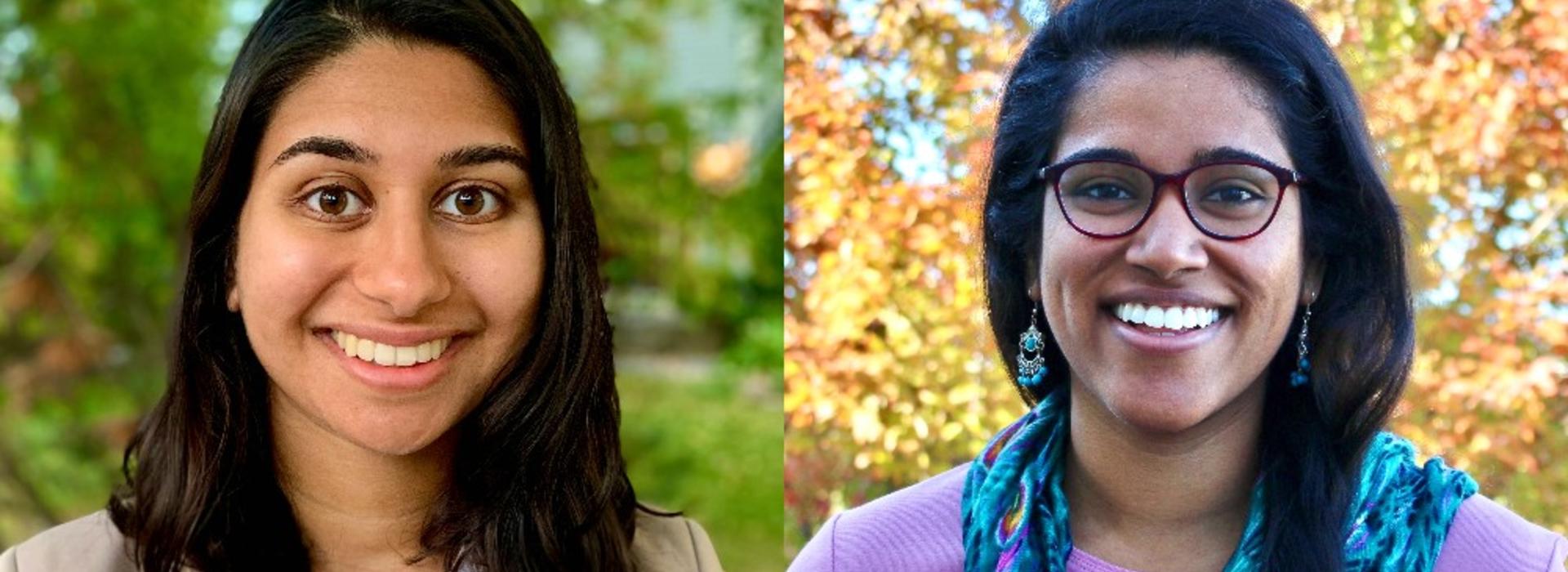
Students Further Community Connection Education
Aditi Kulkarni and Prasanna Vankina, second-year medical students at the University of Minnesota Medical School, created an orientation module centered around the history, culture and geography of the Twin Cities for first-year medical students at the University.
“There's a lot of complex history and information about the culture and geography of the Twin Cities,” Vankina said. “Even a lot of us students who have grown up in this environment aren't always fully aware of their significance. While a lot of these histories and narratives are hard to sit with, there's also so much to celebrate.”
Kulkarni and Vankina came up with the idea shortly after experiencing their own first-year medical school orientation.
"Within just one year of entering medical school, we are in the clinic and seeing patients representing many different communities,” Kulkarni said. “Even if you grew up in Minnesota, there is such a rich diversity here that deserves to be understood in its entirety. It's absolutely essential that we go into these encounters not only understanding the pathophysiological basis for our patient's presenting illness, but also understanding that cultural, historical and geographical contexts play a massive role in health. Moreover, as future physicians, I think we will feel so much more fulfilled by having bonds with our patients that go beyond the superficialities of discussing the latest Vikings game or the weather.”
They began to brainstorm different ways to cultivate more community engagement education. Along with the module, the two facilitated a live zoom community panel session and created educational graphic hand-outs.
Kulkarni described the panel as an opportunity for students to understand how community plays a role in patient outcomes. The panelists included Sun Yung Shin, Peter Rachlef, Jeanelle Austin, Dr. Tseganesh Selameab and Princess Haley. Throughout the discussion, the group discussed how their work is related to health and healing as well as why local history is important to community-centered work.
“As I personally progress through medical school, I’m constantly exploring different specialties and the unique aspects of each,” Kulkarni said. “I always come back to the question: what ultimately is the role of a physician? The answer looks so different for each specialty, but the more I think about it, the more that I find that my answer is always going to be rooted in the community. And I think that no matter who you are, some element of your answer can be found in community.”
The panel and module received an overwhelmingly positive response from students.
“A lot of students ranked the community panel as one of the most, if not the most, valuable orientation activity for them,” Vankina said. “It was a tremendous joy to read the feedback and the actual comments themselves about how meaningful it was both for in-state and out-of-state students. It reminded me that regardless of whether we are in medical school or not, we all long for a deep sense of historical rootedness and belonging in whatever community we find ourselves in.”
Kulkarni and Vankina view the module as a fluid document, reflecting the ongoing cultural and community changes in the Twin Cities as no community is stagnant. The two shared that creating the module was an important reminder of how fully caring for patients requires acknowledging that we all carry more than signs and symptoms when we walk through clinic doors.
“Showing up for your community happens in many different ways,” Kulkarni said. “I don't think it always has to be this big project you planned by yourself. It can also be in the relationships you cultivate, such as simply striving to know your neighbors.”
“I often think about how education is a tool for liberation, and I believe medical education should be no different,” Vankina said. “What if we also looked beyond the walls of the medical school or other institutions to find a sense of belonging and purpose? Valuable learning and meaningful connections are not confined to these spheres alone. And really ask ourselves if we are prioritizing relationality, curiosity and humility proactively at different stages throughout our medical journey. And if not, well then what are the structures or frames-of-mind that need to be dismantled or shifted so that we can?”
"I think this session is also an important reminder that what we prioritize on our resume has little bearing on how we actually care for patients in the future,” Kalkarni said. “I'd really love to see a future in medicine where we look past resumes as a guidance for how we will be as doctors, but rather strive to be excellent community-members, knowing how important it is for the health of our patients."